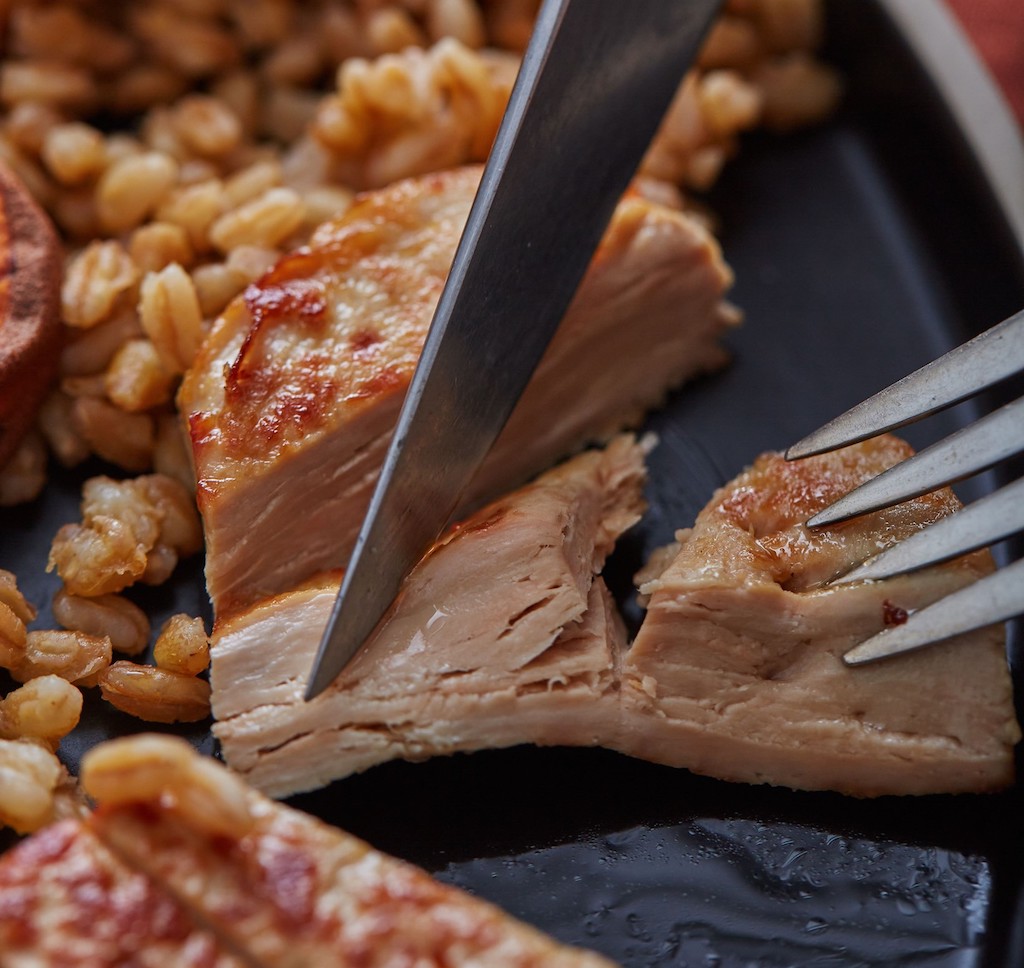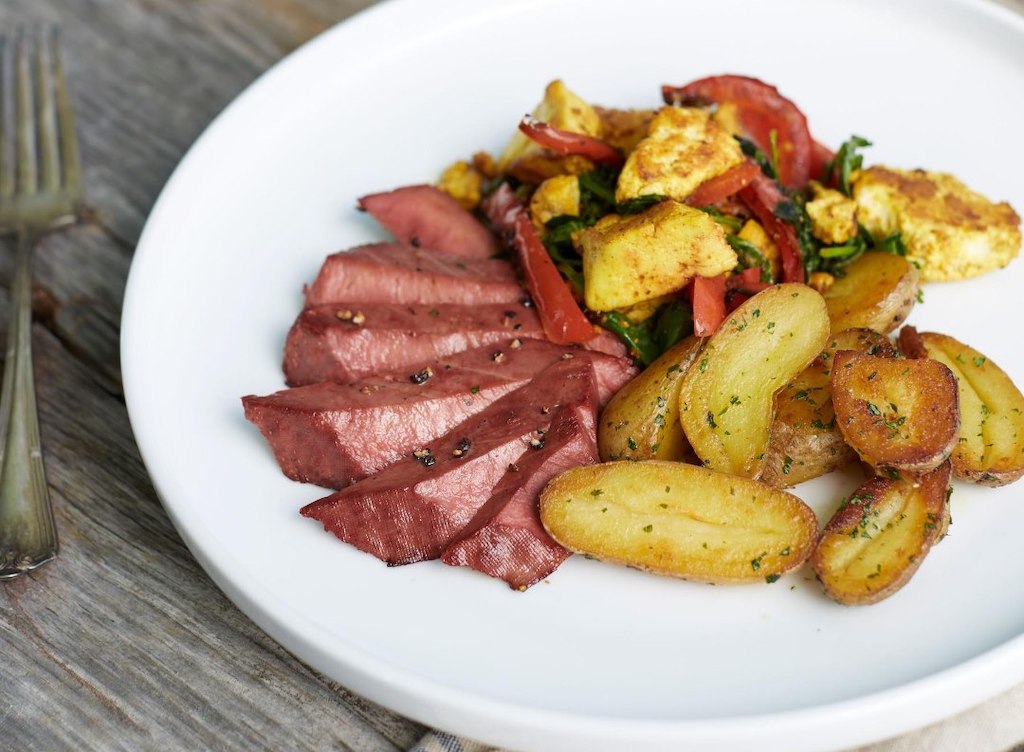3 Mins Read
Meati Foods, the Colorado-based food tech creating mycelium-based meat alternatives, is gearing up to deliver its whole-cut animal-free meat samples and launch its first commercial product this summer. On the heels of its US$28 million round, the startup is powering its way to accelerate the fungi foods movement, leading the way with a number of other fermentation companies who are harnessing mushrooms to create better, sustainable proteins.
Boulder, Colorado-based Meati is preparing to roll out its mycelium-based products as soon as this summer, the firm’s co-founder Tyler Huggins told TechCrunch in a recent interview. Huggins founded Meati with Justin Whiteley back in 2019, and is one of the few food techs right now creating alternative proteins without any extruded soy, peas or wheat protein.

Instead, their animal-free meats are made from the filamentous protein-rich ingredient extracted from the root structure of mushrooms. Producing “plate-ready” mycelium in a matter of hours using techniques they borrowed from age-old cheesemaking, breadmaking and beer-brewing traditions, Meati then shapes and flavours it into delicious whole-cuts of nutritious, high-protein, high-fibre “meat”.
Their analogues stand out from many of the plant-based proteins on the market, which are often mince, patty or sausage formats. Meati’s alternative meats are whole-cuts – they look, taste, and even have the texture and bite of a cut of steak or chicken breast.
Huggins says that the startup will begin production in its pilot plant this summer to debut its first samples of whole-cut beef steak and chicken via foodservice with its restaurant partners in the U.S. this summer. The co-founder also revealed that its first commercial product will be a fungi-based jerky strip.

I want to come out of the gate and say that we’re mycelium jerky.
Tyler Huggins, Co-Founder, Meati Foods
“Meati’s delicious jerky. It provides this blank canvas. We’ll start with these beef-jerky-like flavours. But I want to come out of the gate and say that we’re mycelium jerky,” said Huggins.
The news comes less than half a year after the startup bagged US$28 million in a Series A, which saw global VCs and food industry veterans like Sweetgreen co-founders Nicolas Jammet and Jonathan Neman join the round.
Meati had previously already tested its mycelium steaks with consumers in “secret” trials with a restaurant in Boulder back in 2020, and teased about its DTC launch in 2021. When it announced its Series A, the startup said it was continuing to refine its animal-free analogues after gathering more feedback from chefs and customers.

We’re definitely all in this together.
Tyler Huggins, Co-Founder, Meati Foods
While a first-mover in the space, Meati isn’t alone in the race to bring fermentation whole-cut alternatives to diners. New York-based Atlast Food Co., the makers of the popular pigless bacon, is also using mycelium to develop whole-cut meats, and has bagged US$40 million just last week to speed up production and launch new products.
Newly founded Barcelona startup Libre Foods is on the same mission and is in the R&D process of growing whole-cut steak, poultry and even seafood from filamentous fungi.
Ultimately, Meati says the competition is positive – food techs are in the same boat of accelerating the much-needed shift to more sustainable protein production. “We’re definitely all in this together,” said Huggins.
All images courtesy of Meati Foods.




